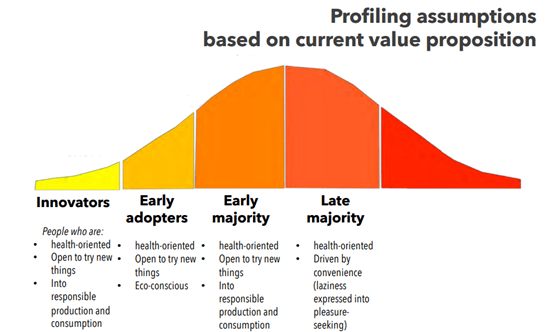What is Concept Testing?
How can a concept testing agency help your business?
The market is quite competitive today. Companies launch new products, update existing ones, and give discounts daily in an effort to draw in customers. According to market research, successful new goods account for more than 25% of all sales and profits.
Before introducing a product or service, you can test your concepts by asking potential consumers what they think about them. This research technique is known as concept testing. As a result, you may determine your consumers' acceptability and willingness to purchase and make important decisions prior to the launch.
By collecting direct feedback from your target market, concept testing enables you to improve a product concept, advertising campaign, new logo, or even a landing page. It can be as quick and easy or complex and iterative as you require.
By gathering feedback from the consumer segments that make up the target market, concept testing research assists teams in evaluating product development, an advertising campaign, or even a message or claim. Making the effort to test before you implement can help you prevent mistakes, customize goods for potential customers, and provide you with data to sell your ideas across your organization.
The appropriate kind of testing can help solve a variety of business problems such as logo testing, name testing, package testing or messaging and so on.
Why Do Companies Need Concept Testing?
Adopting the trial-and-error approach is expensive. Therefore, gathering actionable market insights through idea testing before beginning implementation aids in making the best choices and focuses the efforts.
Facilitates in gaining support early on: The appropriate strategy to acquire support at an early stage and to speed up the process is to do a proper data-driven study that inspires trust in the top management and throughout the organisation.
A Cost-effective and adaptable solution: Though thorough planning can take some time, it creates a strong foundation for product development. According to specialists in the field, getting ready for a product launch is its biggest challenge. Launching a flawed product not only wastes a lot of time and effort but also costs a lot of money.
Helps in product or service optimization: Consumers' top characteristics are highlighted by a concept testing survey. It is possible that we are designing a product with many features but none that people would find useful.
Confirms the product's quality in advance: Customers pay for a product's quality when they purchase it. It makes sense to take into account what consumers themselves identify as the attributes they want throughout the idea testing in order to design a product that has the proper features and improves the customer experience.
Helps to optimize resource investment: Investing resources in an untested idea can be costly. Not only does it cost time and money, but it also has an intangible effect that can lower team morale.

As a concept testing agency, Glocalities provides influential product decision-makers with top-notch, simple-to-read research. We remove the ambiguity and guesswork from product research by utilizing our data science skills and best-in-class methodology while making our insights incredibly straightforward.
Glocalities underlying the framework of worldwide values and psychographic database allows for additional dimensions in concept testing compared to other companies:
- We always keep underlying values in mind, as they are at the core of every decision-making, including which concepts we gravitate towards. Oftentimes people gravitate towards the same concept for different reasons (e.g. vegetarianism can be driven by animal welfare, or sustainability, health, or religion etc). Not realising the driving force behind the choice might create blind spots in communication with consumers.
- As a concept testing agency, we are mindful not only of which concepts perform better than others, but what are the profiles of potential customers that positively respond to the concepts – are we talking about vastly different target audiences or one overarching one? For example, we have recently done a concept test study for one of the leading producers of insect food – and we tested concepts that are in vastly separate categories – from a main dish you can order at the restaurant, to sports nutrition. However, what we found was that despite the categories of food being so different, the positive disposition to insect food was a much more uniting factor, and the target audience across the concepts had a quite uniform profile. That means that the marketing and communication across those products can be simplified by keeping in mind only one target audience.
- In other cases we have identified two or more target audiences for just one NPD concept, but they were present in different markets at different rates. That allowed the head office to still have an umbrella marketing strategy of the product and some shared communication values, whilst having a guidebook for local offices on which communication narratives and attributes to dial up or down depending on their country’s nuances.
- Hence, we had constant functional benefits across countries and audiences, but differing aspirational communication values
- For very new concepts (such as a radical new vegetable, or a radical new cooking appliance unlike anything that exists on the market), we also tend to build several target audiences over time – starting with innovators and moving into a late majority. They have different values profiles, and different communication approaches and should be targeted at different stages of the concept’s life growth to optimise costs.
If you would like to have further information or have a chat about how we can help you as a concept testing agency, please contact us!


